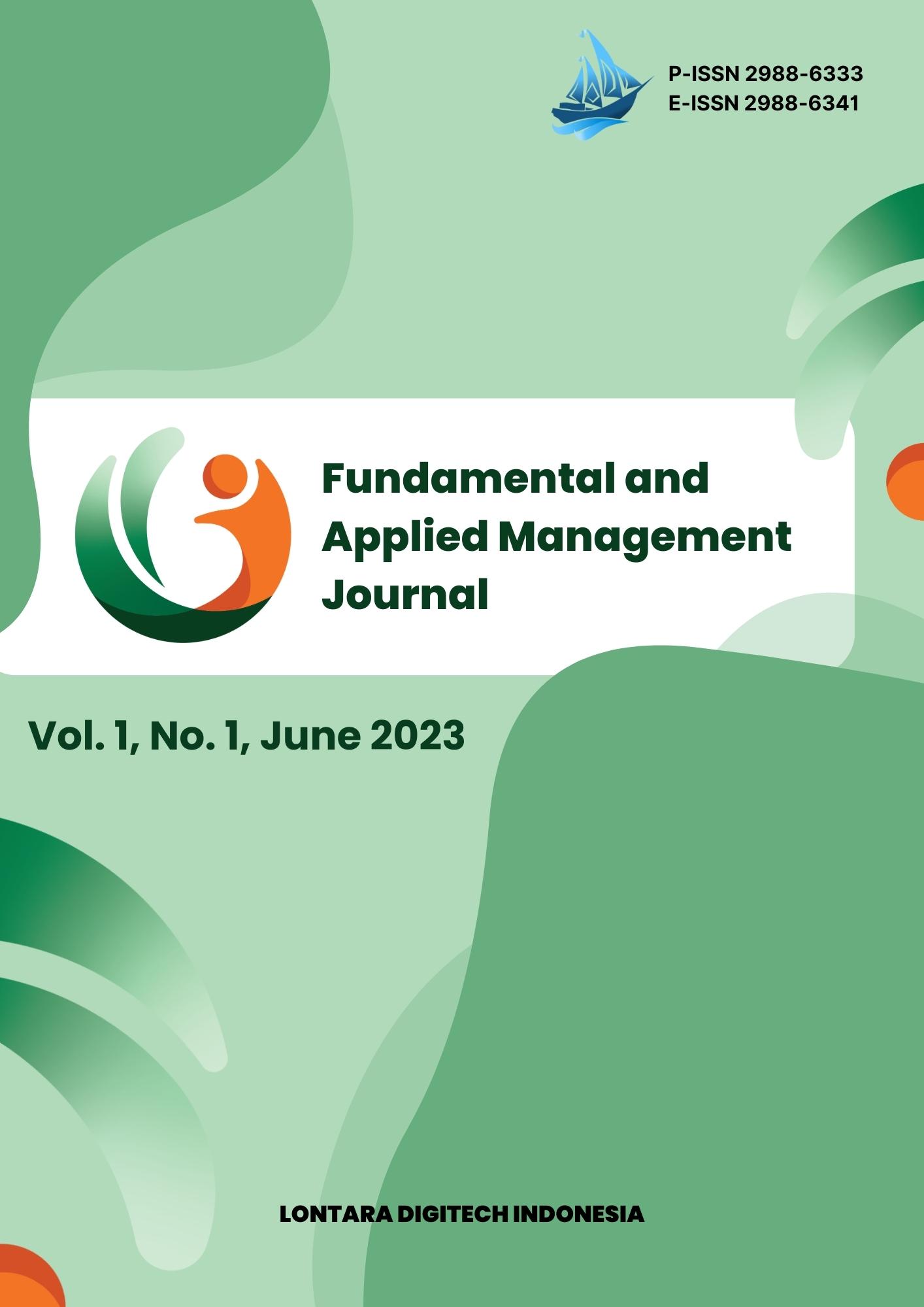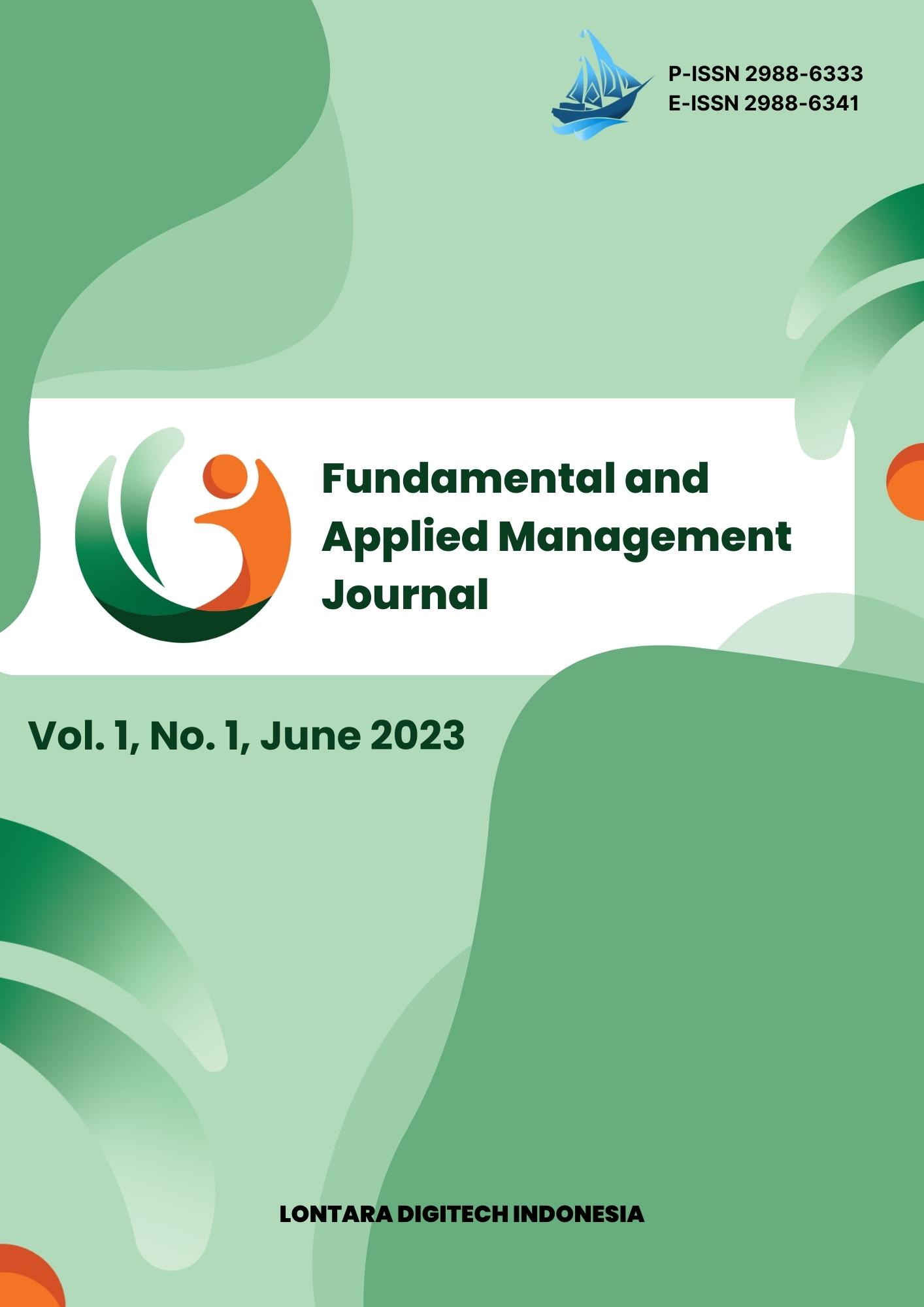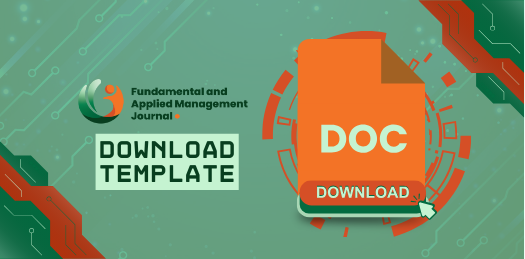Theory of Reasoned Action as a Framework for Analyzing Investment Knowledge in Generation Z
DOI:
https://doi.org/10.61220/famj.v2i1.2243Keywords:
Theory of Reasoned Action, Investment Knowledge, Generation ZAbstract
This study aims to explore investment knowledge among students at Universitas Negeri Makassar using the Theory of Reasoned Action as a framework. The research examines how investment knowledge is influenced by various factors such as behavioral intentions, financial literacy, cognitive biases, social behavior, attitudes toward behavior, and subjective norms. By applying the Theory of Reasoned Action, this study seeks to explain how these factors shape students' decision-making processes in investment. A descriptive analysis method was employed, with data collected through surveys and analyzed using SPSS software. The study involved a population of students from Universitas Negeri Makassar, focusing on how their attitudes, intentions, and social influences impact their investment decisions. The findings indicate that students’ investment decisions are significantly shaped by their attitudes toward investment behavior and their intentions to act. The results highlight the importance of developing financial literacy and addressing cognitive biases to improve students' investment knowledge. This research has implications for educational programs, emphasizing the need to enhance students' potential and equip them with the necessary skills and knowledge to make informed investment decisions.
References
Achmat, Z. (2010). Theory of planned behavior, masihkah relevan. Jurnal Universitas Sumatera Utara, 23(2), 1–20.
Afriliasari, R. (2019). Pengaruh Religiusitas dan Pengetahuan Keuangan Islam Terhadap Perencanaan Investasi (Studi Pada Alumni dan Mahasiswa Magister Ilmu Agama Islam Konsentrasi Ekonomi Islam PPs FIAI UII Yogyakarta). Universitas Islam Indonesia.
Defa, S. (2023). Implikasi TRA (theory of reasoned action) dan TAM (theory acceptance model) pada pengguna layanan online banking (studi kasus pada pengguna layanan online banking mandiri di Bandar Lampung). UNIVERSITAS LAMPUNG.
Jayanti, A. (2021). Perilaku pernikahan dini masyarakat di Kecamatan Onembute Kabupaten Konawe ditinjau dari theory of reasoned action. Indonesian Journal of Education and Humanity, 1(1), 54–62.
Kartini, D., & Nisa, H. (2020). Financial Education and Youth Financial Preparedness. Asian Journal of Education and Social Studies, 9(4), 1–10.
Lestari, M., & Yuliana, S. (2023). Financial Literacy, Technology Use, and Student Investment Readiness in the Digital Era. Jurnal Manajemen dan Bisnis, 25(1), 99–112.
Listyarti, I. (2017). Pengambilan keputusan investasi investor di pasar modal Indonesia ditinjau dari Teori Reasoned Action. Journal of Business & Banking, 7(2), 237–250.
Lusardi, A., & Mitchell, O. S. (2020). The Importance of Financial Literacy: Opening a New Field. Journal of Economic Literature, 52(1), 5–44.
Merawati, L. K., & Putra, I. (2015). Kemampuan pelatihan pasar modal memoderasi pengaruh pengetahuan investasi dan penghasilan pada minat berinvestasi mahasiswa. Jurnal Ilmiah Akuntansi Dan Bisnis, 10(2), 105–118.
Novianti, A., & Kartika, R. (2021). Financial Literacy and Students’ Investment Decision. Journal of Accounting and Finance Research, 4(2), 55–64.
OECD. (2020). OECD/INFE 2020 International Survey of Adult Financial Literacy. OECD Publishing.
Otoritas Jasa Keuangan (OJK). (2022). Survei Nasional Literasi dan Inklusi Keuangan 2022. Jakarta: OJK.
Pradana, A., Kurniawan, R., & Lestari, M. (2022). Millennial and Gen Z Investment Behavior in Indonesia. Indonesian Journal of Business and Finance, 9(1), 77–89.
Rahman, F., & Widyastuti, R. (2021). Pengaruh Literasi Keuangan terhadap Intensi Investasi Mahasiswa. Jurnal Ekonomi dan Pendidikan, 18(2), 112–124.
Rusydi, M., & Zahrani, S. (2023). MINAT MENGGUNAKAN PERBANKAN SYARIAH DI PALEMBANG: PENDEKATAN THEORY OF REASONED ACTION. Journal of Economics and Business, 1(1), 22–34.
Salisa, N. R. (2021). Faktor yang Mempengaruhi Minat Investasi di Pasar Modal: Pendekatan Theory of Planned Behaviour (TPB). Jurnal Akuntansi Indonesia, 9(2), 182.
Septia, D. (2023). Implikasi TRA (Theory Of Reasoned Action) dan TAM (Technology Acceptance Model) pada Pengguna Layanan Perbankan Online. JPNM Jurnal Pustaka Nusantara Multidisiplin, 1(3).
Swasti, I. P. (2020). ANALISIS PERILAKU INVESTOR DI PASAR MODAL SYARIAH DENGAN PENDEKATAN TRA (THEORY OF REASONED ACTION). universitas islam indonesia.
Yushita, A. N. (2017). Pentingnya literasi keuangan bagi pengelolaan keuangan pribadi. Nominal Barometer Riset Akuntansi Dan Manajemen, 6(1), 11–26.
Wulandari, I., Susanti, R., & Rahayu, N. (2023). Financial Literacy, Subjective Norms, and Investment Intentions among University Students. Jurnal Manajemen, 27(1), 88–101.
Yusuf, N., & Taruh, V. (2022). Pengaruh Literasi Keuangan, Sikap Keuangan Dan Kemampuan Akademik Terhadap Perilaku Pengelolaan Keuangan Mahasiswa Akuntansi Fakultas Ekonomi Universitas Negeri Gorontalo. Jurnal Mahasiswa Akuntansi, 1(1), 82–96.
Zhang, Y., & Yu, H. (2022). Application of Theory of Reasoned Action in Financial Behavior Studies. Journal of Behavioral Economics, 14(3), 201–214.
Downloads
Published
Issue
Section
License
Copyright (c) 2024 Nurul Mufida, Hasnadia Rusdy, Arjuna Agung Grison Masiku (Author)

This work is licensed under a Creative Commons Attribution-ShareAlike 4.0 International License.













 Email: famj@lontaradigitech.com
Email: famj@lontaradigitech.com
